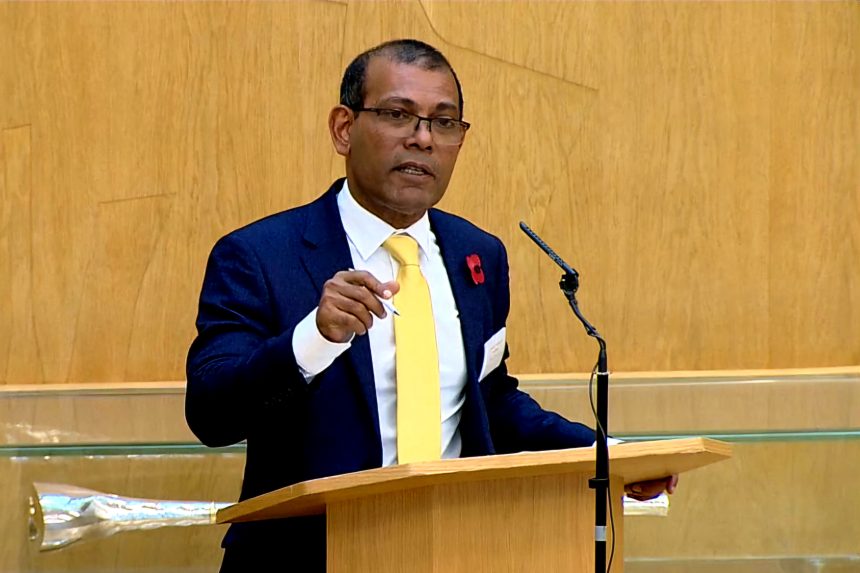Former President Mohamed Nasheed has raised alarms over the deteriorating air quality in the Maldives, emphasizing its potential adverse effects on the nation’s vital tourism industry. Since early January, a persistent haze has enveloped various regions, leading to a noticeable decline in air quality.
In a recent post on X (formerly Twitter), Nasheed highlighted that this pollution surge coincides with the peak tourist season, cautioning that if unchecked, it could deter visitors and harm the tourism sector.
Maldives air quality gets worse every year during this season, which is also peak tourist season. If it continues it is bound to negatively affect tourism. Almost all of this pollution blows in from other countries. We must work collectively to address this problem.
— Mohamed Nasheed (@MohamedNasheed) February 14, 2025
Historically, the Maldives experiences increased air pollution during December and January. Experts attribute this seasonal phenomenon to agricultural burning in neighboring India, where smoke is carried southward by the northeastern monsoon winds. This transboundary pollution has, at times, reduced visibility so severely that nearby islands become obscured from view.
The capital city, Malé, faces additional challenges. Rapid urbanization has led to increased construction dust, vehicular emissions, and smoke from open waste burning on nearby Thilafushi Island, all contributing to declining air quality. The United Nations Environment Programme (UNEP) has previously noted that while many of the Maldives’ islands enjoy relatively clean air, Malé’s pollution levels are rising due to these factors.
In response to these concerns, the Maldivian government launched its National Action Plan on Air Pollutants in 2019. This comprehensive strategy aims to monitor air quality and implement measures to curb pollution from key sectors such as waste management, electricity generation, and transportation. The plan outlines 28 mitigation measures, including transitioning to renewable energy sources and enhancing waste management practices.
Nasheed emphasized that the Maldives’ air pollution is largely influenced by external factors, underscoring the necessity for regional collaboration to effectively address the issue. As the nation heavily relies on tourism, maintaining pristine environmental conditions is paramount. The recent pollution events serve as a stark reminder of the interconnected challenges posed by environmental degradation and economic dependence on natural beauty.
As the Maldives navigates these environmental challenges, the call for both national initiatives and international cooperation becomes increasingly urgent to preserve its natural allure and safeguard its economic future.



